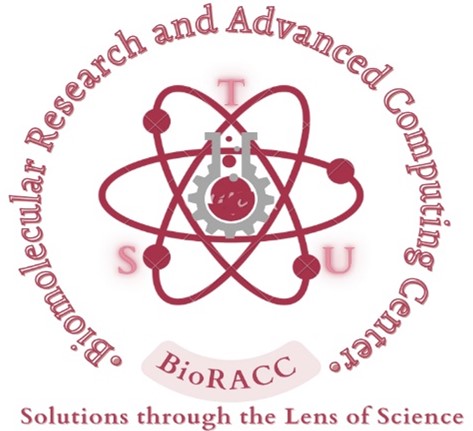URC: BioRACC
|
|
About Biomolecular Research and Advanced Computing Centre (BioRACC) |
Biomolecular Research and Advanced Computing Centre (BioRACC) is a computational science laboratory center that employs high-performance computing, applied mathematics, and domain sciences work together to develop, adapt, and optimize advanced scalable algorithms to solve problems in the field of biological research. At the Centre, we employ combinatory computational tools and experimental techniques in the evaluation of the molecular interactions between biological targets (microorganism or human’s macromolecules) and drugs/small molecules. For example, computational evaluation of the molecular interactions between SARS-CoV-2 proteins and human pro-viral proteins (such as receptors) and the effects of mutations on these interactions. In addition, the Centre conducts basic multidisciplinary fundamental research in artificial intelligence (AI) driven computer-aided drug discovery and development. The Centre provides molecular dynamics simulations packages, such as AMBER, GROMACS and VMD that include molecular visualization facilities for drug discovery.
Overview - Compute

BioRACC Cluster |

BioRACC Computational Laboratory |
|
TSU-BioRACC High Performance Computing |
|
|
Publications
|
Staff
Kehinde Idowu Ph.D., Director
Research Assistant Professor, Infectious Disease Drug Discovery Lab (IDDD Lab), College
of Pharmacy and Health Sciences
Phone:713-313-5643
Infectious Disease Drug Discovery Lab (IDDD Lab), Centre for Biomedical and Minority
Health Research, College of Pharmacy and Health Sciences
Phone: 713-313-5641
To register as a user, kindly email Dr. Scott (scott.widmann@tsu.edu)
